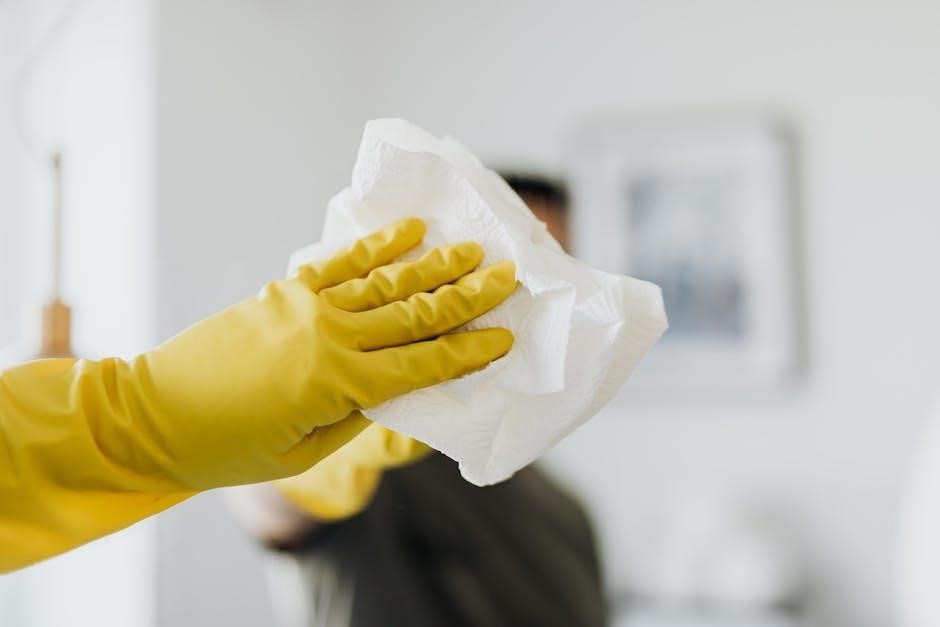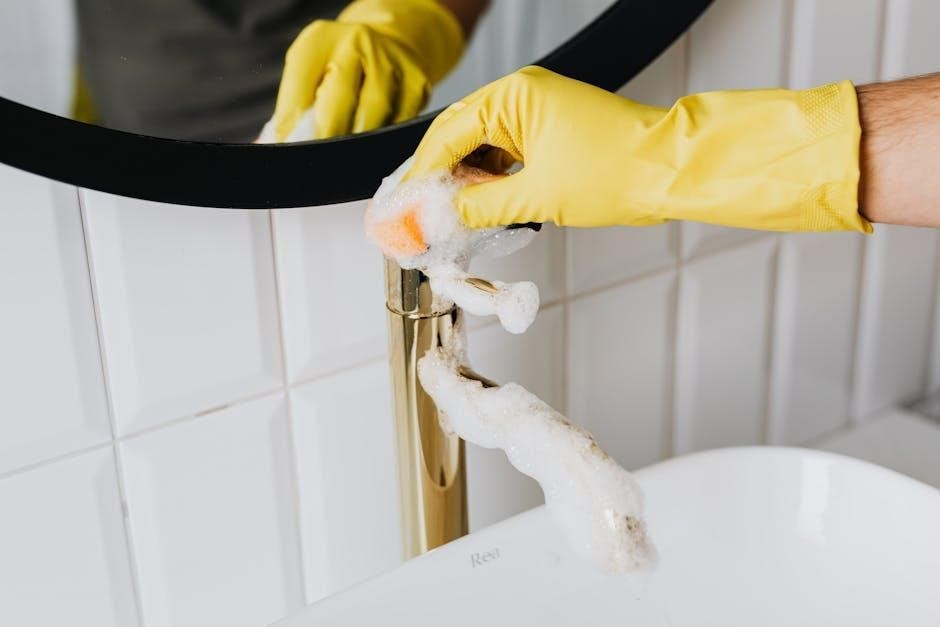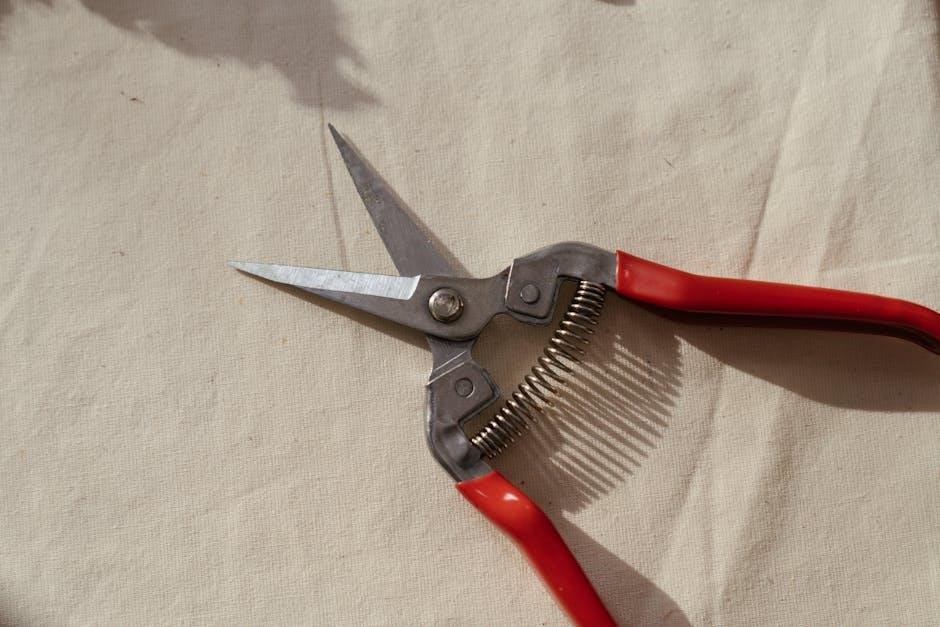Quartz Care and Maintenance Guide
Welcome! This guide provides essential information for maintaining your quartz surfaces. We aim to ensure the longevity and beauty of your quartz countertops. By following these simple steps and advice, you can keep your quartz looking new for years to come.
Quartz countertops have become a popular choice for homeowners seeking a blend of elegance and durability in their kitchens and bathrooms. These engineered surfaces combine natural quartz crystals with resins and pigments, resulting in a non-porous and robust material. Unlike natural stone, quartz requires minimal maintenance and offers a consistent appearance, making it an ideal option for busy households. Quartz countertops resist stains, scratches, and heat, providing a practical and aesthetically pleasing solution. Understanding the composition and properties of quartz is the first step in ensuring its long-term beauty. This guide will equip you with the knowledge to properly care for your quartz surfaces, preserving their pristine condition and extending their lifespan. Discover the simplicity and ease of maintaining these beautiful countertops, allowing you to enjoy their benefits for years to come. Proper care ensures they maintain their luster, enhancing the overall appeal of your living space. Regular cleaning and preventative measures are key to keeping your quartz countertops looking their best.
Daily Cleaning of Quartz Surfaces
Maintaining the pristine appearance of your quartz countertops requires simple, consistent daily cleaning. The non-porous nature of quartz makes it resistant to staining, but prompt attention to spills is crucial. For everyday cleaning, use a soft sponge or dishcloth dampened with warm water. Gently wipe down the surface to remove any food residue, liquids, or debris. For slightly more stubborn messes, a mild detergent can be added to the warm water. Ensure the detergent is pH neutral and designed for quartz surfaces to prevent any damage. After wiping with the soapy water, rinse the surface with a clean, damp cloth to remove any detergent residue. Drying the surface with a soft cloth will prevent water spots and maintain its shine. This daily routine will keep your quartz countertops looking their best and prevent the buildup of grime. Remember, immediate cleanup of spills, especially those from acidic substances like wine or juice, is essential. Regular, gentle cleaning preserves the beauty and longevity of your quartz surfaces, making them a lasting feature in your home.
Recommended Cleaning Products for Quartz

Selecting the right cleaning products is crucial for maintaining the beauty and integrity of your quartz countertops. For daily cleaning, warm water and a soft cloth are often sufficient. However, for more thorough cleaning, several products are recommended. Opt for pH-neutral detergents specifically designed for quartz or engineered stone surfaces. These detergents gently remove dirt and grime without damaging the quartz. Mild dish soap is also a safe option for routine cleaning. Ensure it is non-abrasive and free of harsh chemicals. For tougher stains, consider using a dedicated quartz cleaner. These cleaners are formulated to break down stains without harming the surface. Always follow the manufacturer’s instructions when using any cleaning product. Avoid using abrasive cleaners, scouring pads, or harsh chemicals, as these can scratch or dull the surface of your quartz. Test any new cleaning product on a small, inconspicuous area first to ensure it does not cause discoloration or damage. By using the right cleaning products, you can keep your quartz countertops looking pristine and extend their lifespan.
Dealing with Stubborn Stains on Quartz
Even with regular cleaning, stubborn stains can sometimes appear on quartz countertops. Addressing these stains promptly and effectively is essential to prevent permanent damage. For oil-based stains, like grease or cooking oil, start by blotting the area with a clean cloth to absorb excess oil. Then, apply a mixture of warm water and mild dish soap. Gently scrub the stain with a soft sponge or cloth in a circular motion. Rinse thoroughly with clean water and dry the surface. For water-based stains, such as coffee or tea, try using a paste made from baking soda and water. Apply the paste to the stain, let it sit for a few minutes, and then gently scrub. Rinse well and dry. If these methods don’t work, consider using a specialized quartz cleaner designed for stain removal. Follow the product’s instructions carefully. For particularly stubborn stains, you may need to repeat the cleaning process several times. Avoid using abrasive cleaners or scouring pads, as these can damage the quartz surface. If the stain persists despite your efforts, consult a professional stone cleaner for assistance. Remember, prompt action and gentle cleaning techniques are key to removing stubborn stains from your quartz countertops.
What NOT to Use on Quartz Countertops
To maintain the pristine condition of your quartz countertops, it’s crucial to avoid certain cleaning products and practices. Harsh chemicals, abrasive cleaners, and scouring pads can damage the surface, leading to discoloration, scratching, and a dull finish. Never use abrasive scrubs, as they can scratch the surface of the quartz. Avoid products containing trichlorethane or methylene chloride, such as paint removers or strippers, as these can cause irreparable damage. Strong solvents and acidic cleaners, such as bleach, oven cleaner, or drain cleaner, should also be avoided. These chemicals can etch or discolor the quartz, compromising its appearance. Do not use abrasive pads like Scotch-Brite pads. Steel wool or other abrasive materials should never be used on quartz countertops. While quartz is heat-resistant, avoid placing hot pots and pans directly on the surface, as extreme temperature changes can cause thermal shock and cracking. It’s also important to avoid using permanent markers or other staining agents directly on the quartz surface. Clean up spills immediately, especially those from acidic substances like lemon juice or vinegar, to prevent staining. By avoiding these harmful products and practices, you can ensure the long-lasting beauty and durability of your quartz countertops.
Polishing Quartz Surfaces: Is it Necessary?
One of the great advantages of quartz countertops is their inherent sheen, which often leads homeowners to wonder if polishing is ever needed. The short answer is generally no; polishing quartz surfaces is typically unnecessary. Quartz surfaces do not require polishing to maintain their gloss finish. Quartz countertops are engineered to have a consistent and durable shine that lasts for years with proper care. Unlike natural stone surfaces like granite or marble, quartz is non-porous and doesn’t require regular polishing to maintain its luster. In fact, attempting to polish quartz can potentially damage the surface, leading to an uneven finish or even scratching. Quartz surfaces should not be re-polished under any circumstances, even quartz floors or countertops. The best way to keep your quartz countertops looking their best is through regular cleaning with mild soap and water. For stubborn stains, a non-abrasive cleaner can be used, but avoid harsh chemicals or abrasive pads. If you notice a dull spot or scratch, it’s best to consult a professional rather than attempting to polish the surface yourself. They can assess the damage and recommend the appropriate course of action.

Sealing Quartz: Does Quartz Need to Be Sealed?
A common question among new quartz countertop owners is whether or not sealing is necessary. The answer is a resounding no; quartz countertops do not need to be sealed. Quartz does not need to be sealed because of its inherent composition and manufacturing process. Quartz countertops are engineered surfaces made from approximately 90-95% ground quartz and 5-10% resins and polymers. This combination creates a non-porous surface that is resistant to stains, bacteria, and moisture. Unlike natural stone countertops like granite or marble, which have natural pores that require sealing to prevent liquids from seeping in, quartz is inherently impermeable. Applying a sealant to quartz countertops is unnecessary and can even be detrimental. Sealants are designed to penetrate porous surfaces, and when applied to non-porous quartz, they can create a hazy film or discoloration. Instead of sealing, focus on regular cleaning with mild soap and water to maintain the beauty and integrity of your quartz countertops. Clean up spills immediately to prevent any potential staining, although quartz is highly stain-resistant.
Maintaining the Finish of Quartz
Maintaining the finish of your quartz countertops is straightforward, thanks to the material’s durable and non-porous nature. Consistent care will ensure your countertops retain their original luster and beauty for years. Regular cleaning is the key to maintaining the finish of quartz. Use a soft cloth or sponge with warm water and a mild detergent to wipe down the surfaces daily. This will remove everyday spills and prevent buildup that can dull the finish over time. Avoid using abrasive cleaners or scouring pads, as these can scratch the surface and diminish its shine. Even though quartz is stain-resistant, it’s essential to clean up spills promptly, especially those from acidic substances like lemon juice or vinegar. Prolonged exposure to these substances can potentially affect the finish. For stubborn stains, use a non-abrasive cleaner specifically designed for quartz surfaces. Never apply waxes or polishes to your quartz countertops. Quartz surfaces do not require polishing or sealants to maintain their gloss finish. Soapy water is the best treatment for cleaning. These products can leave a residue that dulls the finish and attracts dirt.
Repairing Damaged Quartz Surfaces
While quartz is incredibly durable, accidental damage can occur. Fortunately, minor chips and scratches can often be repaired, restoring the surface to its original condition. For small chips, a color-matched epoxy or resin filler can be used. Clean the damaged area thoroughly before applying the filler. Carefully follow the manufacturer’s instructions for mixing and applying the epoxy. Once the filler has cured, use a razor blade to carefully remove any excess, blending it seamlessly with the surrounding surface. For deeper scratches, you may need to consult a professional. Attempting to repair deep scratches yourself can worsen the damage if not done correctly. A professional can use specialized polishing techniques and equipment to remove the scratches and restore the surface’s finish. In cases of severe damage, such as large cracks or burns, professional repair is essential. A qualified technician can assess the damage and determine the best course of action, which may involve filling the crack with a color-matched resin or replacing the damaged section. Preventative measures can minimize the need for repairs. Always use cutting boards to protect your quartz countertops from scratches, and avoid placing hot pots and pans directly on the surface.

Routine Maintenance for Quartz Surfaces
Establishing a routine maintenance schedule is crucial for preserving the beauty and longevity of your quartz surfaces. Daily wipe-downs with a soft cloth and warm water are essential for removing spills and preventing buildup. For more thorough cleaning, use a pH-neutral cleaner specifically designed for quartz surfaces. Avoid abrasive cleaners or scrub pads, as these can dull the finish. Address spills immediately, especially those from acidic substances like wine or lemon juice. Regular inspection of your quartz surfaces is also important. Look for any signs of damage, such as chips, scratches, or stains. Addressing minor issues promptly can prevent them from becoming more significant problems. Consider using trivets or hot pads under hot cookware to prevent heat damage. Although quartz is heat-resistant, prolonged exposure to high temperatures can cause discoloration or cracking. Use cutting boards to protect your countertops from scratches. Avoid dragging heavy objects across the surface, as this can also cause damage. By incorporating these simple steps into your routine, you can keep your quartz surfaces looking their best for years to come. Regular maintenance is an investment in the long-term beauty and value of your home.

